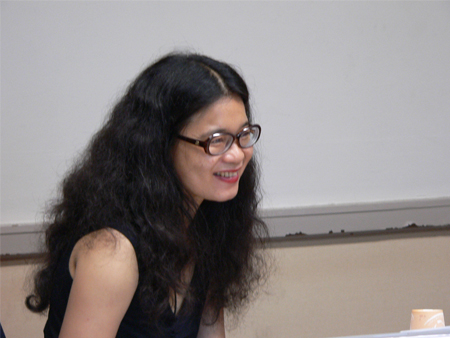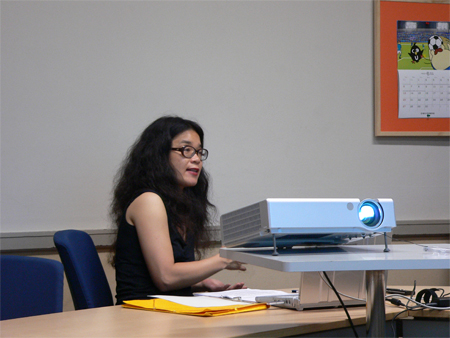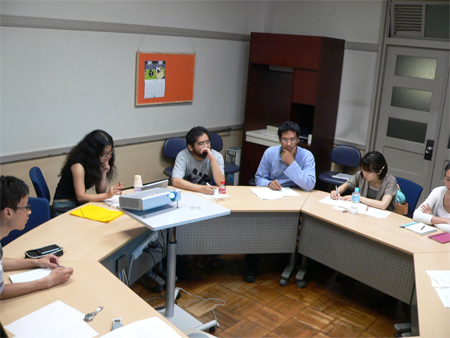[Report] "Why Does the CCP Still Rule China Today? A Historical Perspective"
On July 9, 2010, UTCP invited Dr. Thin Minh-Hoang Ngo from University of Province (France).
We held the lecture titled “Why Does the CCP Still Rule China Today? A Historical Perspective” on Komaba campus of the University of Tokyo. Dr. Minh-Hoang Ngo is specialist in the Chinese contemporary history and Chinese politics. Her parents were from Vietnam and became French citizen later. Dr. Ngo studied in China for one year and in Tokyo for two years.

In this lecture Dr. Ngo tried to reveal some important features of Chinese Communist Party (CCP), which helps CCP to still rule China today. In the first half of her lecture, she analyzed the Chinese Communist Party Revolution, focusing on “a hybrid revolutionary process.” She addressed CCP’s policy for rural area. In her view, CCP sent agents to the villages, where they cooperated with peasants and promulgated communist values, thereby penetrating deep into the bedrock of Chinese society by 1970s.
In the second part, Dr. Ngo discussed “the legacy of CCP revolution in today’s China.” During the Mao period, China experienced “democracy” to a certain extent, though of course it is not exactly the same as the Western type. According to Dr. Ngo’s analysis, the growth of peasants’ sense of rights in this period encouraged greater self-government in Chinese rural societies. For example, the election of village committees since 1980s has contributed to the development of grassroots democracy. This election cannot be considered as “Western-type democracy,” but is rather to be associated with the Mao’s Mass Line policy.

She concluded that the persistence of CCP rule in China is linked with the nation formation. In her view, this nation formation includes a great variety of people, from peasants to intellectuals. As a consequence, today Chinese people’s identity is inseparable with Communist Party.

Following the talk, the Q & A section touched upon many topics, such as “democracy,” the comparison between contemporary and traditional Chinese society’s power structure, between CCP and Vietnamese Communist Party and the relationship between her lecture and today’s economic growth.
ABE Naofumi (UTCP Fellow)






